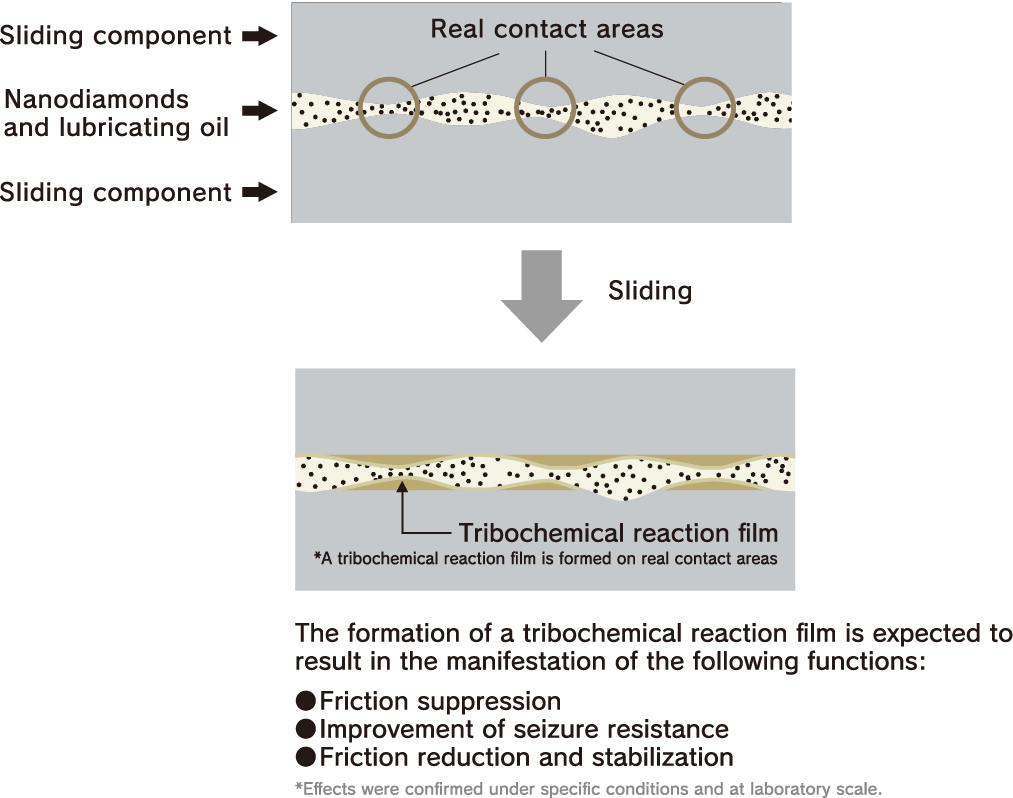The characteristics of diamonds remain the same even at nanoscale.
Low viscosity, heavy load, low speed. Nanodiamond anti-wear agents that function even under harsh conditions.
Scroll
Anti-wear agent for lubricating oil
Characteristics of nanodiamond anti-wear agents
In recent years, the viscosity of lubricants has been decreasing due to energy saving of equipment resulting in more severe frictional conditions. In addition, under boundary lubrication conditions such as high load (high surface pressure) and low speed, sliding substrates come into contact with each other. Adhesive and abrasive wear occur at the true contact points, resulting in seizure and an increase in the friction coefficient. Lubricant additives such as extreme pressure agents and anti-wear agents are commonly applied as solutions to friction under such severe conditions.
However, such agents are often based on the concept of preventing direct contact of metal substrates by forming a reaction film on the metal surfaces. They are effective for suppressing adhesive wear and seizure, but in the long run, there is some concern that the amount of wear will increase due to wear of the soft reaction film. This would lead to degradation of the reliability of the equipment.
Daicel provides nanodiamonds as an anti-wear agent for lubricating oil. Since nanodiamonds form a tribochemical-reaction film characterized by the suppression of chemical wear (corrosion) on sliding boundary surfaces, they can prevent direct contact between substrates.
Expectations for nanodiamonds in lubrication applications
- As an extreme-pressure agent and friction modifier
-
A feature of nanodiamonds is that they function at room temperature.
This is expected to improve the frictional properties of sliding materials operating at room temperature.
In addition, they are more environmentally-friendly than existing metal additives because they are carbon materials. - As a surface modifier and conforming agent
- We are considering using nanodiamonds as a surface finishing agent to create sliding surfaces suitable for friction (conforming surfaces with smoothness, hydrophilicity, and lipophilicity) in the processing stage for sliding materials. This is expected to have the advantage of eliminating the need for running-in when forming conforming surfaces.

